STRAIGHTtalk: With Karl Bohnak

Karl Bohnak, TV6 meteorologist for 27 years speaks about life and the weather in STRAIGHTtalk: Conversations With People You Should Know. (photo by Ron Caspi)
Marquette, MI – Brian Cabell sits down with the UP’s favorite meteorologist, Karl
Bohnak, for a candid conversation about females, politics, TV news and
climate change.
BC: How would you describe yourself as a boy? Curious? Adventurous? Mischievous?
KB: I would say I was the curious type and occasionally I was adventurous. For instance, during the Milwaukee riot back in 1967, I decided to go on my bike and I went into the inner city—I didn’t tell my parents about that. (laughs) I just wanted to see what was going on. I’d occasionally do things like that but I wasn’t really a risk-taker.
BC: When did you first realize you had an interest in girls?
KB: I’d have to say it was something like seventh or eighth grade. It was a girl that everybody loved, Janet Cryer. Everybody tried to get her attention. She was tall and we thought beautiful at the time. Of course, I was not all that popular so I couldn’t really get her attention.
BC: When did you discover you had a genuine interest in weather?
KB: In about the first grade I have my first memories of weather. It was a big snow year in Milwaukee and I remember the snow up to the fence posts and that’s when I became a snow fanatic, a snow freak. And as I got a little older, I started reading books and then in third or fourth grade, I started keeping a little weather diary and I eventually made a weather station. So, yeah, I started really young.
BC: What about TV? When did you first think you could combine your interest in weather with television?
KB: I was always interested in the media because I listened to the radio and I knew who was on. I knew the personalities. While I was growing up, there was a weatherman on TV in Milwaukee before they had meteorologists, but he knew his stuff and I would always watch him, and I’d get really upset when he was on vacation because then the good-looking woman in the tight sweater who knew nothing about weather would do the weather. (laughs) So that was probably fifth or sixth grade.
BC: We’re now in the age of the Internet. Have you had any problems adjusting to that?
KB: I’m really not that much into social media. I do it because I’m required to. It’s part of my job but I’m really not that interested in this person’s feed or that person’s comment. Now, with weather, there’s so much more information on the Internet now. Even ten years ago, there wasn’t nearly this much information available. If I wanted to look at weather maps fifteen years ago, I would have to go into the station because I still didn’t have the Internet at home or it was so slow that you could go wash the dishes while a map would download on dial-up. So it’s just blossomed over the last decade.

Karl Bohnak’s childhood fascination with snow and weather led him to become a meteorologist. (photo by Ron Caspi)
BC: Is TV dying in any sense because of the Internet? Are TV newscasts and weathercasts becoming obsolete?
KB: It’s definitely changing. I don’t think it’s dying. I think there will always be room for a local newscast and personalities but the amount of people watching is going down. Certainly young people—they never watch TV news anymore as far as I know.
BC: Can you point to your single most embarrassing moment ever on TV?
KB: Well, there was this one time just before Thanksgiving, it was the Late News and I had a chest cold. And I started coughing and gagging and it was so bad that we went to commercial, and when we came back, Steve (Asplund) had to read the weather forecast. I couldn’t even talk and while he was reading it, I was still in the background coughing and gagging (laughs). My eyes were just running. It was terrible.
BC: You do TV and you’ve written a couple of books. Which do you like better?
KB: I like the immediacy of TV and keeping track of weather day in and day out, month in and month out. I really like that aspect of it. On the other hand, I really like the ability to do some research and look back at things, and for instance, see how certain months correlate with months in previous years. I can do that with writing.
BC: Climate change and global warming. You’re an outspoken skeptic.
KB: Yes, because you need to look at things critically and ask yourself, what are they telling us and what are the real facts here? For instance, the argument that 97% of the scientists believe that global warming is occurring and it’s caused by humans. Since when is science about consensus? It’s not. One scientist could do an experiment that refutes the whole thing. But this issue has become so political. Politics is all about consensus but science is not.
BC: What’s the one compelling argument you would present to prove that global warming is not caused by man?
KB: The last eighteen years, temperatures on earth have remained static. They haven’t really moved up or down while carbon dioxide emissions have gone up ten percent in that same time. There’s been something like 54 excuses put out trying to explain why this is occurring. But it wasn’t predicted by all the computer models that assumed that carbon dioxide was going to warm us up relentlessly, on and on and on. It just hasn’t occurred.
BC: Generally speaking, why has the earth been warming up over the last century, even taking into account the last eighteen years?
KB: It’s warmed up ever since the end of the Little Ice Age which was roughly in the 1850-1900 range. It warmed up, then it cooled off from the Forties to the Seventies while carbon dioxide emissions skyrocketed. Then it correlated for a time from the late Seventies with the great climate shift in the Pacific Ocean when it went into its warm cycle. Now in recent years, it’s been holding static. So we’ve been warming up mildly in the last century. Eight-tenths of a degree Celsius! That’s certainly not catastrophic. It’s not even unusual. So again, it’s all about critical thinking. There’s a lot of uncertainty. We certainly influence the climate locally and regionally, but to say that we’re now driving global climate and we can control the earth’s temperature, that makes no sense.
BC: Politically, would you classify yourself as libertarian?
KB: I would say libertarian, yes. I’m more of a fiscal conservative and a social liberal. If I look back at my personal journey, I’ve always been quite liberal. But I think the thing that has pushed me over the edge to be more conservative when it comes to government policy is the climate issue. Because if you look at this, you realize this is not about science. It’s totally about politics and activism and control.
BC: President Obama. What do you think about our President?
KB: I would say that he is an idealist. Further, I would say he’s an ideologue. The man, I think, isn’t really in touch with what matters to those of us who have to work for a living. For instance, he’s pushing the climate issue, saying it’s the greatest issue that we have to have to deal with. Yet his actions don’t illustrate his concern. He flies around in Air Force One and his wife and kids will fly around in another plane and they’ll meet in Hawaii for a vacation. If climate is that much of a concern, he should have cut back. And he would say, “This is my example, this is what I’m doing.” But that’s a politician for you. He’ll tell you, “Don’t do what I do. Do what I tell you to do.”
BC: What about your religious beliefs? Anything serious? Anything profound?
KB: I’m a recovering Catholic. (laughs) I would have to say I’m agnostic. However at the same time I do have a belief in the fact that there’s a higher power, there’s a spiritual realm, and if you look at some of the ancient texts, especially in some of the other traditions outside of the West, you’ll see that there are things that we can’t explain. And near death experiences, they seem to show that there is something out there after we leave this plane.
BC: You’re a veteran of a couple of marriages. What’s the secret of a good marriage?
KB: The secret to a good marriage is to quickly forgive and realize that you’d rather be in love than be right. And you have to be able to laugh.
BC: What do you like most about yourself?
KB: About myself? Oh, that’s difficult. I guess I would say that I listen quite well.
BC: On the other hand, what’s your biggest flaw?
KB: I would say that sometimes I fly off the handle before I have all the information.
BC: What’s a perfect day for Karl Bohnak?
KB: I would say it would be a day where I get up after sleeping really well. Get up, have some coffee, look at some weather on the computer, do some exercise, have a great breakfast, have a day off from work, and I’d be able to do something that I really like to do. Maybe I’d start writing again, and then I’d write for a few hours, and then afterwards I’d have some friends over for the night. We’d have a few drinks and have some interesting conversation.
BC: Do you ever get tired of the cold and think you might want to head down to Florida or Arizona?
KB: No. No. However, I tell people one of the reasons I moved up here was because of the winter and the snow, and I have to say that now, I don’t like it quite as much as I used to.
BC: Finally, Karl Bohnak’s epitaph. What would you like it to say?
KB: Here’s a man who did what he wanted to do and he lived successfully with lots of friends and lots of love.
BC: That’s not bad. Thanks, Karl.






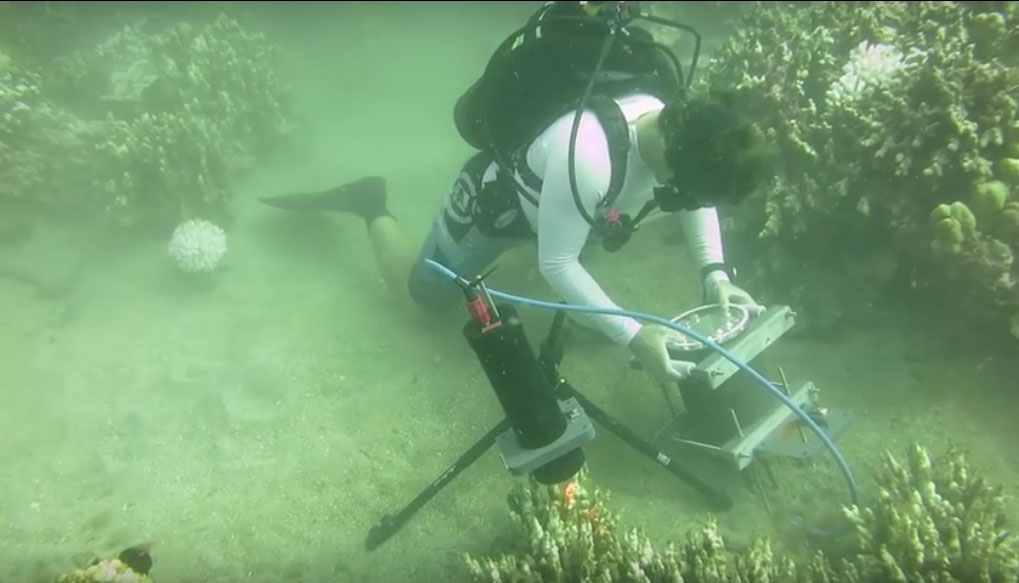
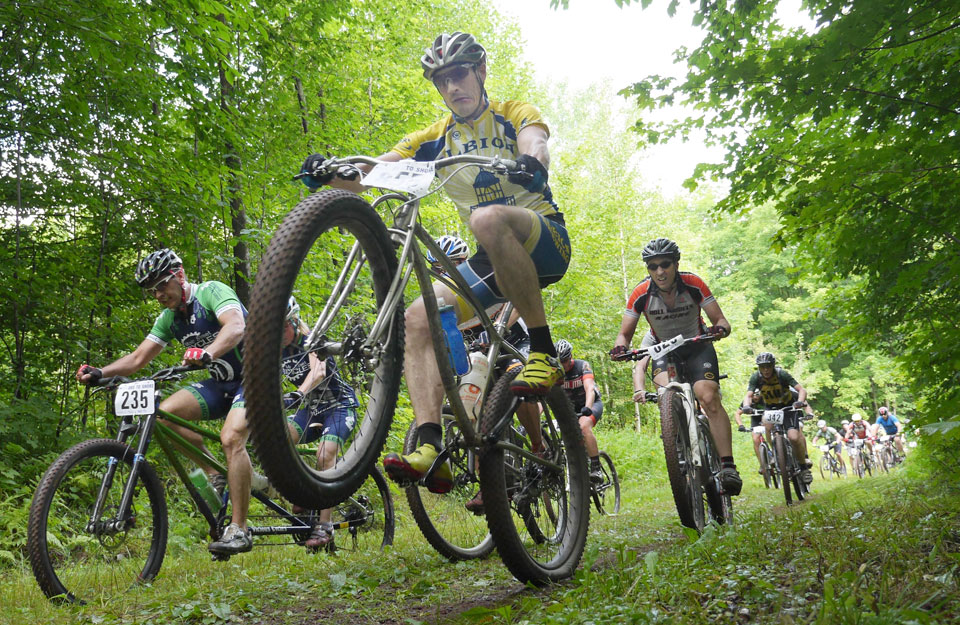
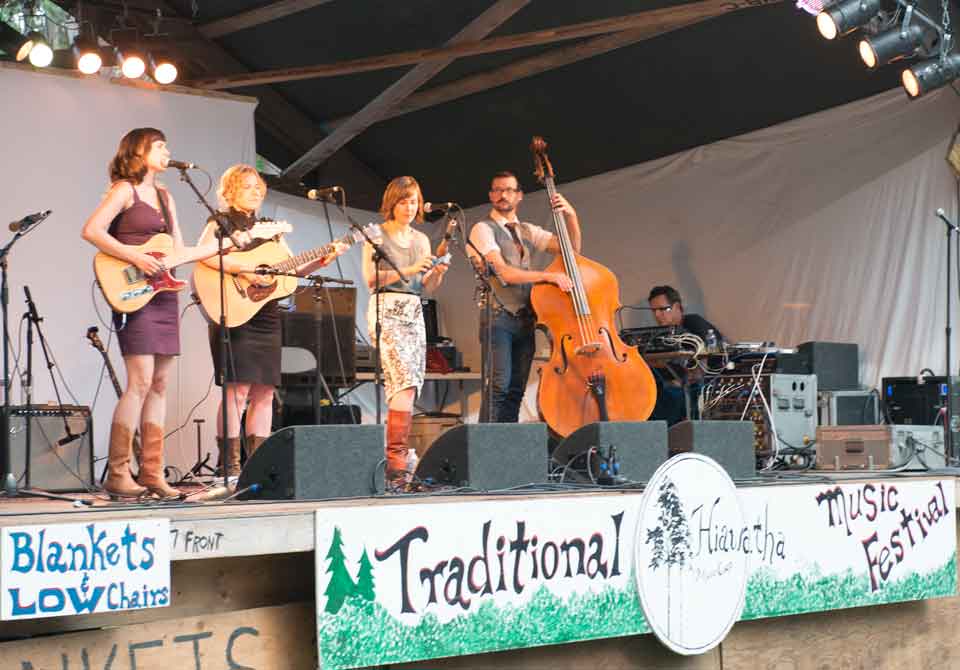
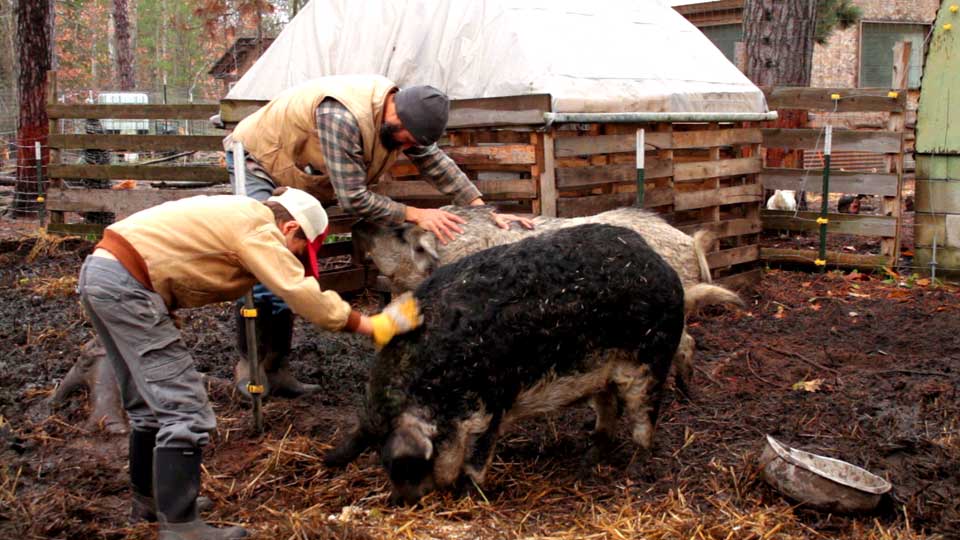
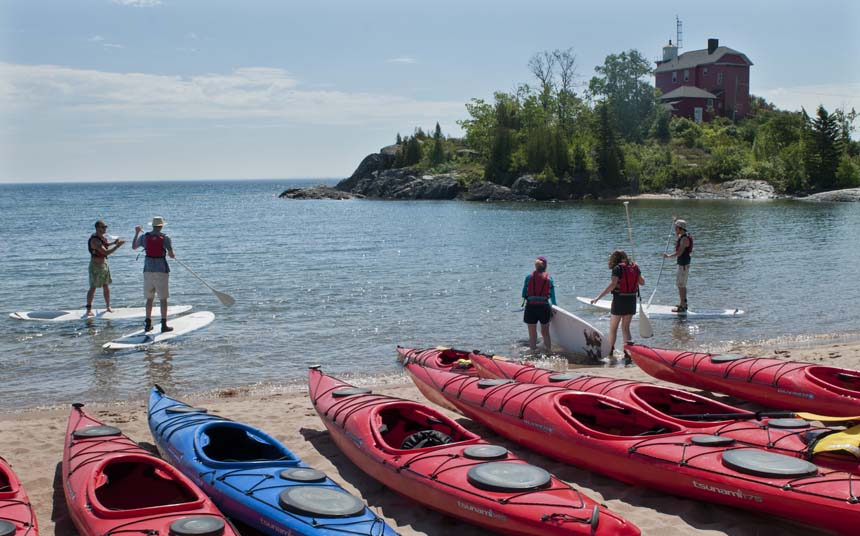
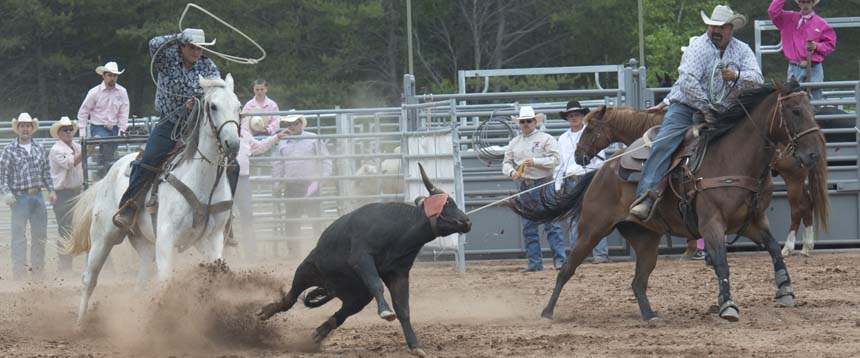
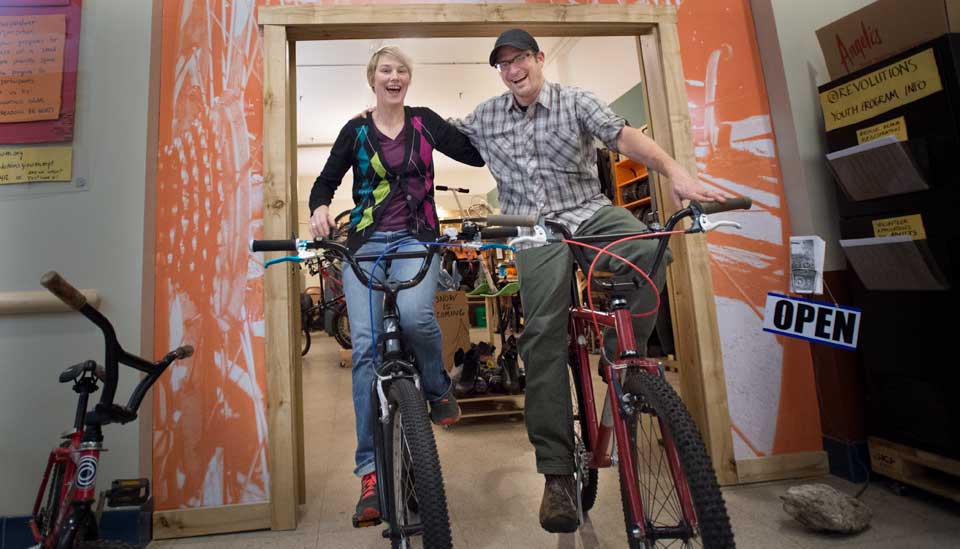
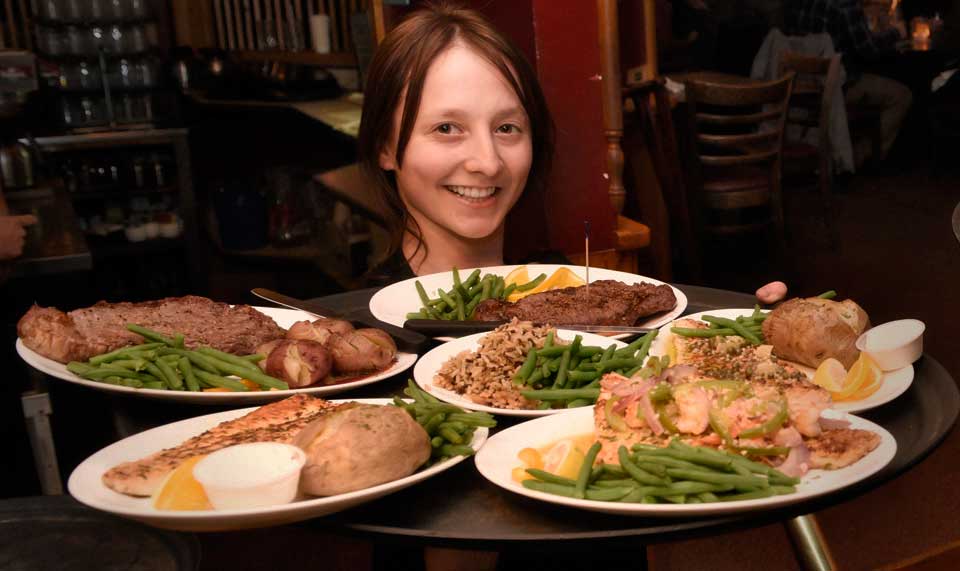
You must be logged in to post a comment Login